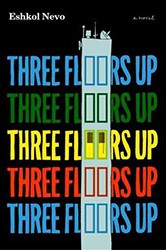Amos Oz, the prominent Israeli writer, has written a masterful double memoir, the story of his youth and of Israel’s birth and early years. As the title suggests, these parallel stories are suffused by the light of love and shadowed by the pain of personal and national darkness.
Truly a memoir, A Tale of Love and Darkness is composed of memories, sometimes flashing forward to link with Oz’s present and his own writings and sometimes flashing back to his family’s history in Europe. Few facts of Oz’s life are told; his memories, many centering on the suicide of his mother, are his story.
Born Amos Klausner, Oz was heir to a strong Zionist tradition. His mother attended a warm Jewish cultural school in her native Rovno, Russia, later Poland. His father’s family, from Odessa, was notable for Oz’s great-uncle, Joseph Klausner, a leading Zionist theorist, scholar and author, and political figure. After the Revolution life in Russia became impossible for both families. The Mussman family sailed to “the Levant.” The Klausners made their way to Vilna. When anti-Semitism there became unbearable, they cast about for a new home. All doors were closed; in 1933 they arrived in Palestine. In 1938, witty, rational Yehuda Ariel Klausner married intuitive, romantic Fania Mussman. A year later the mismatched couple gave birth to their only child, Amos.
Despite the ardent Zionism of both families, in many ways they never left Europe. Palestine was a strange land to them, with its sweaty Arab markets, desert creeping almost to their backyards, and overbearing British colonial presence. They read the great European writers, they gathered over tea with cakes and biscuits to argue politics, they wore carefully kept suits and ties. The Yiddish-speaking Orthodox Jews of Mea Shearim were as foreign to them as the muscled, sun-tanned pioneers.
When Oz was 12, his mother committed suicide after a long depression. Determined to break with his lonely, painful, and book-filled life, Oz left for Kibbutz Hulda. Leaving behind Jerusalem and the intellectual aspirations of his family, he changed his name to Oz, strength, perhaps in defiance of his father’s judgment that he was not physically fit for kibbutz life.
These years also mark the birth of Israel. Oz’s account of the tense and dangerous struggle after the exhilaration of the UN vote to create two states is compelling and personal; his parents’ basement apartment was home for months to many of their friends, huddled in the safety of darkness day and night. His life in the kibbutz recreates an almost closed chapter in Israeli life, and a startling summons to David Ben Gurion’s office to discuss Spinoza recalls what a small world Israel was.
The book is beautifully constructed, a series of concentric circles growing smaller as Oz examines and reexamines his formative years. Events are sometimes retold, especially his mother’s unsettling final years, each time at a closer range, enriched by the progressing story. Oz works his way into his parents’ marriage and their legacy— his mother’s fabulous tales of witches and meadows, his father’s wide-ranging and always instructive conversation. Emotions are often held under the surface but occasionally flare, particularly in Oz’s glowing memory of his sexual awakening. Then, as the circles get ever smaller and closer to the core of his life, Oz opens up his long-held memories, and we share his triumph over them.
This is an important and richly rewarding book, sensitively told and filled with memorably drawn characters.
Maron L. Waxman, retired editorial director, special projects, at the American Museum of Natural History, was also an editorial director at HarperCollins and Book-of-the-Month Club.



